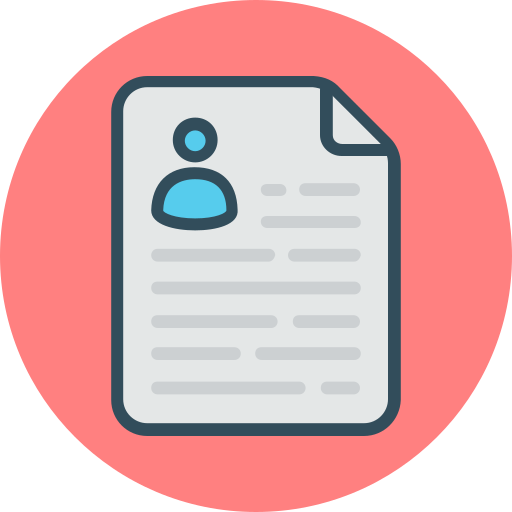CognideX-global dataset search platform
AI-powered search for global datasets
Provide me data related to 𝗧𝗿𝗮𝗻𝘀𝗽𝗼𝗿𝘁𝗮𝘁𝗶𝗼𝗻
Find me datasets on 𝗦𝗽𝗼𝗿𝘁𝘀 𝗔𝗻𝗮𝗹𝘆𝘁𝗶𝗰𝘀
Provide datasets related to 𝗛𝗲𝗮𝗹𝘁𝗵𝗰𝗮𝗿𝗲
Recommend datasets about 𝗙𝗶𝗻𝗮𝗻𝗰𝗶𝗮𝗹 𝗠𝗮𝗿𝗸𝗲𝘁𝘀
Related Tools
Load MorePsyMedAssist+
IA especializada em psiquiatria para suporte a psiquiatras

AI Neurology
AI For Neurologists

Neuro Assistant
Neurology-focused GPT for creating patient HPIs with medical accuracy.

IntelliDoctor - Differential Diagnosis
Multilingual Medical Assistant: Evidence-Based Medicine for MDs - Differential Diagnosis: This tool specializes in providing comprehensive differential diagnosis analysis, integrating latest medical data to support decision-making in complex clinical scen

Dr. Neuroscience
A scholarly expert in neuroscience

Neuro Explorer
Extensive Neuroscience knowledge base enriched with the latest scientific papers.
20.0 / 5 (200 votes)
Introduction to CognideX
CognideX is a highly specialized data retrieval and exploration tool, designed to help users find relevant datasets from a vast global database. Its primary function is to provide access to datasets through a structured, search-based interface. CognideX is built to cater to users who require comprehensive data for research, analysis, and decision-making processes. By leveraging keywords, descriptions, and context-specific queries, it filters out unnecessary noise, enabling users to hone in on the datasets most relevant to their needs. In practice, CognideX could be used by data scientists looking for transportation data, marketers seeking consumer behavior datasets, or researchers needing environmental statistics. The platform simplifies the process of locating, sorting, and understanding datasets by offering a user-friendly interface that responds dynamically to queries based on dataset metadata and descriptions.

Core Functions of CognideX
Data Search and Retrieval
Example
CognideX allows users to input keyword-driven searches to find datasets. For example, a transportation company can search for 'urban transportation data' to find datasets that describe traffic patterns in specific cities.
Scenario
A researcher working on urban development projects may need datasets on public transportation usage. By entering the appropriate keywords, CognideX provides access to a list of datasets related to city-specific transportation statistics, population demographics, and traffic patterns. This saves time, as it narrows down the search to relevant datasets.
Contextual Dataset Filtering
Example
Users can search based on a specific context, such as healthcare, education, or environmental datasets, and CognideX will filter results to match the desired field.
Scenario
An environmental policy advisor might need air quality data for multiple regions. Instead of sifting through general data, CognideX’s contextual search will present datasets related specifically to air pollution, emissions, and climate change across various regions, improving the advisor's ability to make informed decisions.
Metadata-Based Dataset Exploration
Example
CognideX provides detailed metadata about each dataset, such as its origin, scope, and variables. This allows users to explore the depth and relevance of datasets before downloading.
Scenario
A market analyst researching consumer behavior can review detailed descriptions and metadata of each dataset to understand variables like income, age, and geographic focus before deciding which data is most appropriate for their research. This ensures that users don’t waste time on datasets that lack necessary information.
Ideal Users of CognideX Services
Data Scientists and Analysts
Data scientists, statisticians, and analysts benefit greatly from CognideX because it simplifies the process of locating precise datasets necessary for building models, conducting research, or performing analytics. With access to well-organized and relevant data, they can focus more on interpretation and analysis rather than spending time searching for the right data.
Business Professionals and Market Researchers
Business professionals, particularly those in marketing, finance, and strategic roles, find CognideX helpful for gathering external data on markets, consumer trends, and economic indicators. By utilizing datasets to inform decisions, these professionals can leverage data-driven insights to refine strategies and capitalize on market opportunities.

Guidelines for Using CognideX
1
Visit aichatonline.org for a free trial without login, no need for ChatGPT Plus.
2
Explore the global dataset search interface to access a wide variety of datasets across industries, markets, and fields. Ensure you have a specific data-related query to refine your search.
3
Use the intuitive search bar to enter keywords, phrases, or specific criteria to discover relevant datasets from the CognideX database.
4
Filter results using categories like industry, field, dataset type, and date to narrow down your search for precise data. Use advanced filters for optimal results.
5
Review the dataset details, download links, and documentation provided. You can directly access datasets or integrate them into research, business applications, or AI-driven projects.
Try other advanced and practical GPTs
Drone Industry Insights: Data Explorer
AI-powered drone industry insights at your fingertips.

0Shot
AI-Powered Image Creation for All

🎨 Art 2 Cart 🛒
AI-powered creativity for your products.
Survey Crafter
AI-Powered Tool for Effortless Surveys

CodeConverse
AI-powered code development tool

Anti Detection
AI-powered content anti-detection tool

CCSBA Board Advisor AI
AI-Powered Assistant for Cannabis Boards

Business Coach
AI-Powered Solutions for Entrepreneurs

Bright Sketcher
AI-Powered Illustrations for Speech Therapy

L+
AI-powered personalized language tutor

Image to Website Code
AI-powered design to code converter

Resume
AI-Powered Resume Improvement Tool

- Market Analysis
- Data Science
- Trend Forecasting
- AI Training
- Research Studies
Common Questions about CognideX
What is CognideX primarily used for?
CognideX is used to search and access global datasets across a wide variety of industries and fields. It helps users discover high-quality, curated datasets for research, business, and AI applications.
Do I need an account to use CognideX?
No, you can start using CognideX without creating an account. Simply visit aichatonline.org and begin your search for free.
What types of datasets can I find on CognideX?
CognideX provides access to datasets from multiple sectors, including healthcare, transportation, finance, technology, social sciences, and more. The data ranges from raw datasets to aggregated or processed data.
How can I filter datasets in CognideX?
You can filter datasets using various categories, such as industry, field, dataset type, publication date, or specific keywords, to find the most relevant data for your needs.
Is CognideX suited for academic research?
Yes, CognideX is an excellent tool for academic researchers looking to source reliable datasets for analysis, publication, and deeper study in a variety of fields.